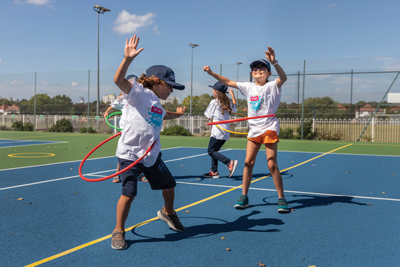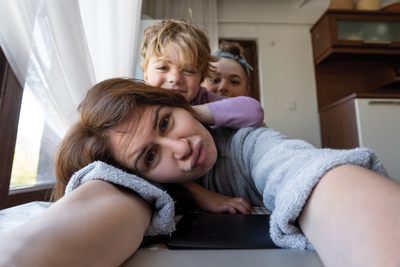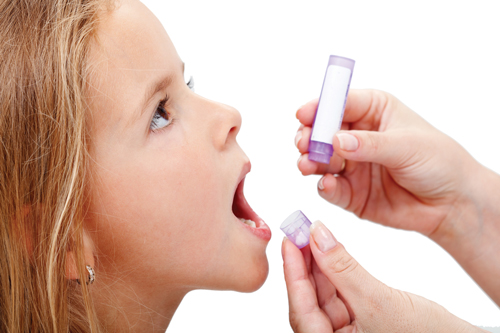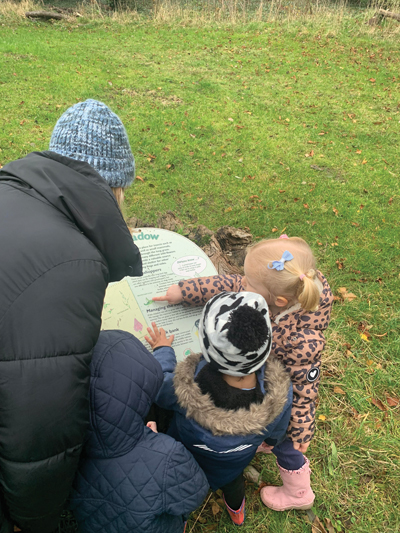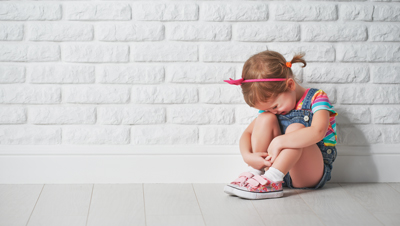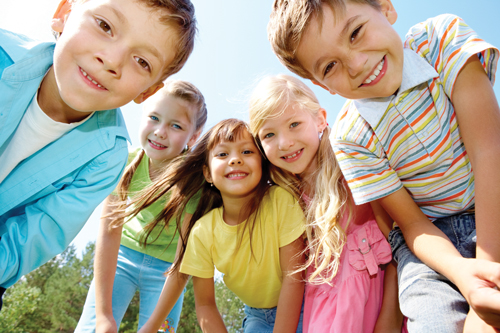
by Debbie Webb
Founder of Activ8 For Kids
The school holidays can be a time for fun and relaxation, but it’s also important to keep children engaged and active during this time. School holidays are always an exciting time for children, but it can be a challenging time for parents who still need to work. This is where holiday clubs often come in, providing children with a safe, fun environment. There are a wide range of holiday clubs available depending on the interests of the children, but with the rising cost of living, parents may wonder whether the cost of the holiday clubs are worth it and whether trying to entertain them at home is a better option. So what do we want our children to be doing during the school holidays, what will help them to develop and grow as individuals and help them later in life?
As much as your child may push against routines, children actually thrive in a routine. It gives them a sense of purpose, clear expectations and a structure to their day. Routines can help their self-esteem and ensure they feel less anxious and more comfortable. Lie-ins, chilled time in front of the TV, playing computer games and having days out are all great and bring a range of benefits, but it is also important to build in time to be active and have opportunities to socialise with others regularly.
Current recommendations from the government are for children to take part in at least 60 minutes of moderate to vigorous activity a day. This means their heart rate should increase, they should be out of breath and feel hot after the activity. Physical activity is essential for maintaining good health, strengthening muscles and bones, enhancing motor skills and can prevent obesity and related health problems. Ensuring your child is active every day and recognises the benefits it brings (both physically and mentally), can cultivate a lifelong habit of exercise and a healthy lifestyle. As well as keeping them healthy, being active brings so many more benefits:
• Allows children to burn off excess energy; remember school is very tiring and during the holidays they need alternative ways to channel that energy.
• Boosts confidence and promotes social skills.
• Develops and improves their fundamental movement skills of balance, co-ordination and agility.
• Improves mental wellbeing and makes them feel good about themselves. Exercise can improve their mood, enable them to experience a sense of accomplishment and can also stimulate the release of endorphins, which are natural mood boosters.
• Contributes to better sleep.
• Increases self-esteem and helps to reduce stress and anxiety.
• Physical activity stimulates brain function and enhances cognitive abilities. Studies have shown that active children perform better academically and have improved attention spans. During school holidays, engaging in physical activities like sports, outdoor games or even activities that involve problem solving and critical thinking can contribute to their cognitive development.
• Engaging in different activities and exploring new places fosters creativity, stimulates imagination and curiosity and also problem solving skills.
Children who get to be active everyday alongside other children will also benefit in all the following ways:
• Develop new skills.
• Develop team work and leadership skills.
• Make new friends.
• Develop independence.
• Develop their social interaction skills.
• Learn how to transfer skills across activities.
Socialising with others during school holidays is crucial for children’s social development. It provides opportunities for them to practise communication, co-operation, teamwork and conflict resolution. Participating in group activities and interacting with others helps children build friendships, develop empathy and understand diverse perspectives.
Overall, children being active and socialising during school holidays is essential for their physical health, mental wellbeing, cognitive development, social skills and creativity. Parents, carers and communities should provide opportunities and support for children to engage in a variety of activities that promote physical activity.
Debbie Webb is a qualified teacher and sports coach. She runs Activ8 For Kids and has developed programmes of activity for the different ages and stages between two and sixteen years old based on the fundamental movement skills. Visit www.activ8forkids.co.uk for more information.

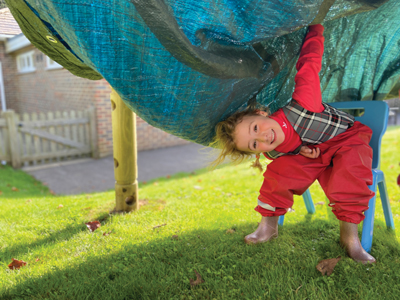
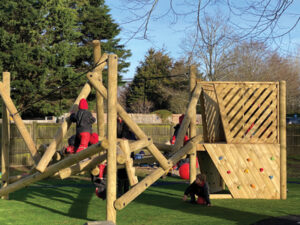 The ability to write is an essential skill to learn and a tool for life. It is interesting to understand that developing children’s upper body strength is essential to help them control their hands and fingers. This is because there is a strength domino effect which starts at the top: once children can control the large muscle groups of the shoulder, upper back and core, they are able to exert more control on their upper and lower arm, which in turn enables them to control their hand well, before finally achieving fine motor control in the fingers. By climbing, pulling themselves up and hanging down, the muscles in the shoulder are well exercised and this has huge benefits for handwriting and, as they grow older, handwriting at speed.
The ability to write is an essential skill to learn and a tool for life. It is interesting to understand that developing children’s upper body strength is essential to help them control their hands and fingers. This is because there is a strength domino effect which starts at the top: once children can control the large muscle groups of the shoulder, upper back and core, they are able to exert more control on their upper and lower arm, which in turn enables them to control their hand well, before finally achieving fine motor control in the fingers. By climbing, pulling themselves up and hanging down, the muscles in the shoulder are well exercised and this has huge benefits for handwriting and, as they grow older, handwriting at speed.